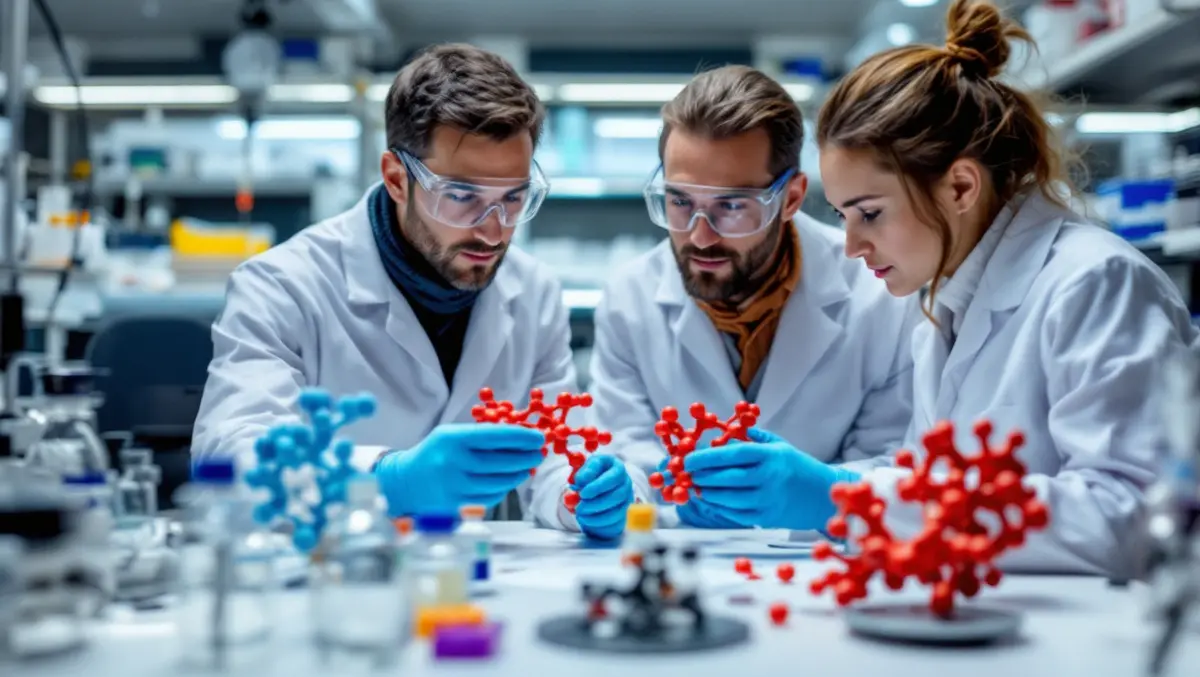
Kyron.bio raises EUR €5.5m to boost safer antibody therapies
Kyron.bio has secured a EUR €5.5 million investment round to further develop its glycan-engineering technology, aimed at improving the safety and efficacy of biologic drugs.
The company, based in Paris, is developing a platform that enables precision control over glycans, sugar molecules present on the surface of therapeutics. This platform has implications for cancer and autoimmune disease treatments by aiming to reduce adverse immune responses often associated with current therapies.
The funding was led by HCVC and included participation from Verve Ventures, Entrepreneurs First, Saras Capital, as well as several angel investors. The investment will be used to accelerate the advancement of kyron.bio's platform, expand its team, and support preclinical research. The launch of kyron.bio's EIC Transition project, which is supported by the European Innovation Council, coincides with this investment round.
The company's technology is specifically targeted at antibody therapeutics, a significant class of drugs utilising the immune system to treat diseases such as cancer and autoimmune disorders. Despite their widespread use, one of the main challenges in antibody therapy is the patient's immune system identifying the therapy as foreign and mounting an attack against it. This can result in ineffective treatment, pose risks to chronic patients, and prevent some novel drugs from progressing through early-stage clinical trials.
By addressing the issue of immune rejection, kyron.bio aims to enable better outcomes for patients. The inconsistency in the addition of glycans during the standard biomanufacturing process can cause drugs to provoke unwanted immune reactions or lose efficacy. Kyron.bio's approach centres on providing precise control over this process, allowing for specific glycan structures to be used in drug design to avoid such responses.
The company's platform involves two main technologies—novel engineered cell lines and a proprietary glycan-engineering toolbox. One aspect involves genetic manipulation of Chinese Hamster Ovary cells, the standard production factories for therapeutic antibodies, to establish complete control of glycosylation. The second involves modifying the antibody itself to resist immune attack and boost performance while generating defensible intellectual property.
According to kyron.bio, this dual-approach technology achieves over 97% consistency in glycan structures, a significant increase compared to current industry standards. This consistency is expected to contribute to improvements in drug safety and therapeutic effectiveness.
Kyron.bio has indicated that pharmaceutical companies interested in developing next-generation monoclonal antibodies stand to benefit from its technology, as these treatments often involve complex structures that are more likely to provoke immune responses. In the context of chronic diseases like autoimmune disorders, the technology may also help more patients remain on lifelong treatment without developing resistance. In the field of oncology, it holds potential to increase the rate at which drugs meet safety endpoints in early clinical development.
The company notes that the growing complexity of biologic therapies and the need for long-term treatment in chronic conditions have made immune rejection a greater challenge for drug makers, and that its technology is designed to address these difficulties.
"kyron.bio's technology bridges a massive gap in therapeutics design. Their breakthrough in glycan control could shift the paradigm for antibody therapies, and we're proud to support their vision," Alexis Houssou, Founder & Managing Partner at HCVC, stated.
"To date, glycans have been massively under-exploited, limiting their potential in drug design. By achieving comprehensive control over glycosylation in a fully scalable manner, we have unlocked the possibility to use precision glycosylation in drug design. This transforms glycans into a design tool for the first time, opening up new treatment avenues for patients. Securing this fundraising round brings us closer to our goal of delivering precision glycan-engineered therapeutics to patients," Dr Emilia McLaughlin, CEO & Founder of kyron.bio, commented.
Dr McLaughlin's background in studying rare single-cell organisms during her doctoral research at Institut Pasteur Paris has influenced kyron.bio's scientific approach. Under her leadership, the company has established a scalable, patent-protected method addressing what it describes as a longstanding molecular design problem in biologics.


